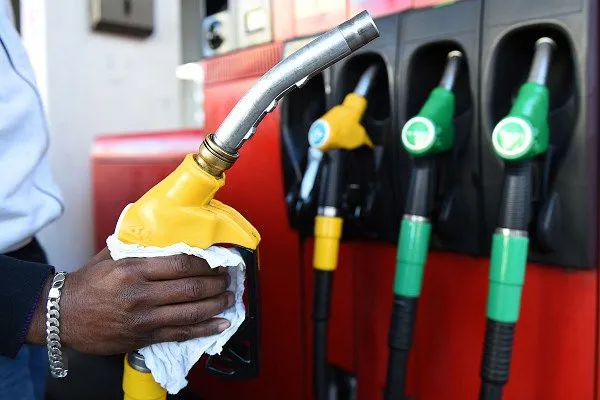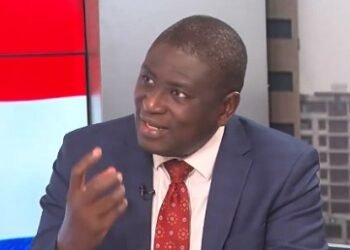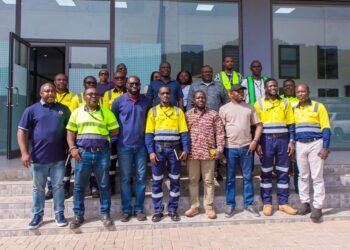Ghana’s petroleum consumption surged by 18.02% in the first quarter of 2025 compared to the same period in 2024, according to the Chamber of Oil Marketing Companies (COMAC).
The Chamber described the increase as encouraging for the industry but warned that the growth must be matched with improved regulatory structures and systemic efficiencies to ensure long-term sustainability.
Dr. Riverson Oppong, CEO and Industry Coordinator of COMAC, emphasized that while the sector’s expansion signals increased energy demand and economic activity, it also exposes deep-seated vulnerabilities in the petroleum supply chain and regulatory framework.
“Growth without structure is instability, and regulation without collaboration is inefficiency.”
Dr. Riverson Oppong, CEO and Industry Coordinator of COMAC
According to COMAC’s Petroleum Volumes Analysis Report for January to October 2024, the national consumption for the first half of 2024 was recorded at 3,074 million liters, marking a 14.88% increase from the 2,676 million liters recorded in 2023.
Notably, specialized fuels such as Gasoil (Cell Site) and Marine Gas Oil (MGO) Foreign saw substantial growth, with increases of 644.38% and 151.06%, respectively.

These trends suggest a significant uptick in industrial and infrastructural activities, particularly in telecommunications and maritime sectors.
The COMAC chief outlined several pressing concerns that threaten to undermine gains made by the industry.
Chief among them are frequent product stockouts at key depots, delayed authorizations for cross-zonal product movement, inefficient operations at loading terminals, and a disturbing trend of product quality failures.
“These issues may seem operational, but they affect the entire value chain—from marketing and distribution to consumer satisfaction and national energy security.”
Dr. Riverson Oppong, CEO and Industry Coordinator of COMAC
He cited examples of Oil Marketing Companies (OMCs) facing unnecessary delays due to bureaucratic red tape in securing permits for transporting petroleum products between designated zones.
According to COMAC, these bottlenecks have caused disruptions in supply and added costs to operations.
Need for Stronger Enforcement

COMAC called on regulators and stakeholders to work more closely to address compliance lapses, especially concerning the Unified Petroleum Price Fund (UPPF), which plays a central role in stabilizing prices and ensuring equitable access across Ghana.
Dr. Oppong urged a review of enforcement mechanisms to curb non-compliance and ensure fair competition within the sector.
He also highlighted the importance of addressing weaknesses in product standard enforcement and quality assurance.
“We must collectively enforce stringent product quality controls to eliminate substandard fuel from entering the system.
“The rise in product quality failures is not just a technical issue; it is a public health and safety concern.”
Dr. Riverson Oppong, CEO and Industry Coordinator of COMAC
The COMAC leadership further underscored the need to strengthen local content regulations to ensure that Ghanaian firms benefit meaningfully from the petroleum downstream value chain.

The Chamber also stressed the importance of tightening licensing procedures for new market entrants to preserve the integrity and viability of the sector.
Despite the challenges, COMAC reaffirmed its readiness to support regulatory bodies such as the National Petroleum Authority (NPA), the Ministry of Energy, and other institutions in developing and implementing reforms.
The Chamber called for a comprehensive strategy that addresses both structural and operational bottlenecks.
Dr. Oppong emphasized that robust stakeholder engagement would be essential to crafting effective solutions that deliver efficiency, transparency, and resilience.
The 18.02% increase in national petroleum consumption in Q1 2025 reflects a positive trajectory for Ghana’s oil marketing industry.
However, sustaining this growth will require continued investment in infrastructure, adherence to regulatory frameworks, and responsiveness to global market dynamics.
As the sector navigates these challenges, strategic initiatives and policy reforms will be crucial in maintaining stability and fostering long-term growth in Ghana’s petroleum industry.
READ ALSO: Wencai Zhang Calls on Finance Minister, Pledges Stronger World Bank-Ghana Partnership























